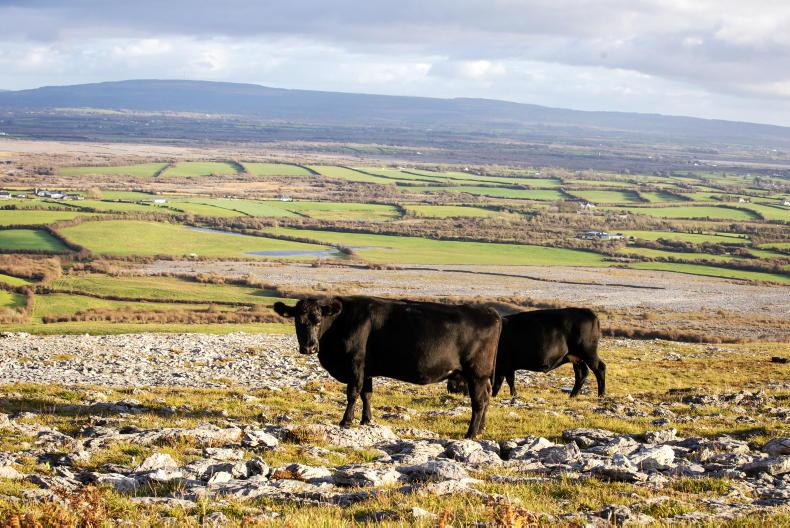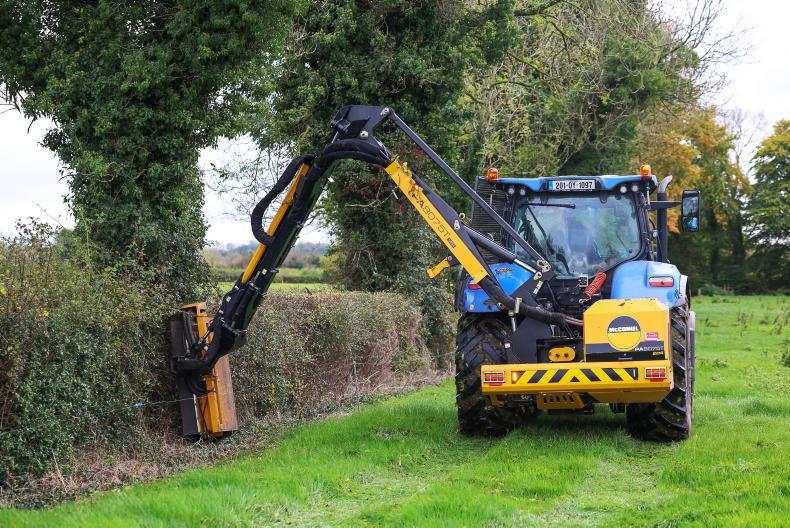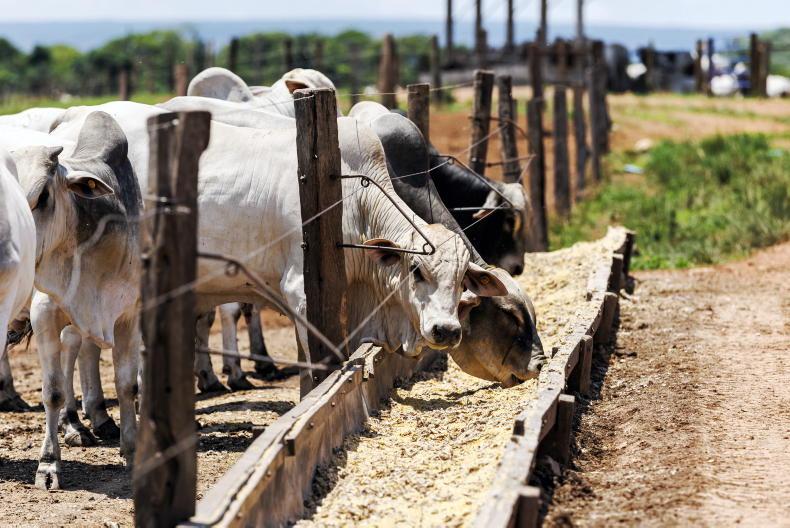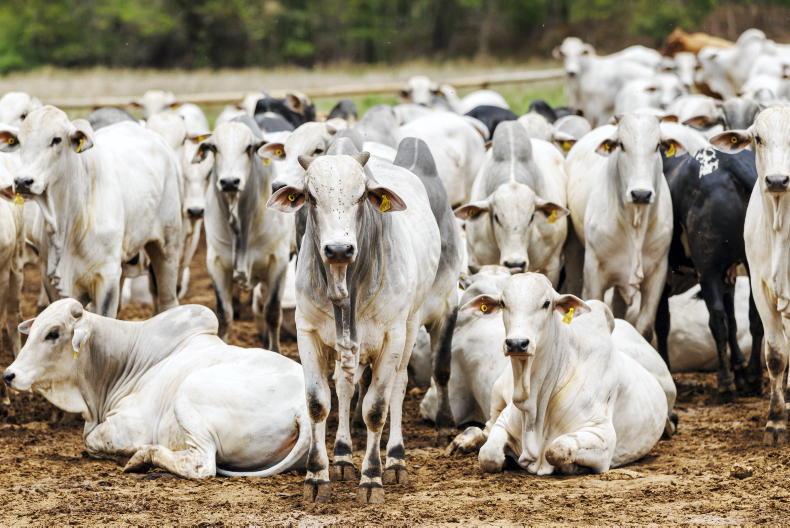The Irish Farmers' Association
The Irish Farmers' Association (IFA) has accused the EU’s Farm to Fork and biodiversity strategies of being “unrealistic” and said that they could push farmers out of business.
“There needs to be a comprehensive economic impact assessment of these proposals by the EU and separately by the Irish Government and Minister Creed. He should ask Teagasc to begin this immediately,” IFA president Tim Cullinan said.
It is likely that farmers will end up paying through higher costs
Cuts to pesticide use and an emphasis on organic farmers are all part of the strategy. Cullinan said that the Commission wanted food produced to organic standards, but available at conventional prices.
“It is likely that farmers will end up paying through higher costs and low prices, while retailers will continue to make billions,” he said.
Lack of realism
He continued by questioning the role of the European Commissioner for Agriculture as it is widely acknowledged that the strategy was driven by the Commissioner for Health.
The Agriculture Commissioner wasn’t even included in the press conference today
“There is a lack of realism in many of the proposals in these strategies. A fundamental question needs to asked about what input the EU Agriculture Commissioner Janusz Wojciechowski and DG Agri had in drafting them. The Agriculture Commissioner wasn’t even included in the press conference today,” he said.
“One positive is an acknowledgement that farmers deserve credit for carbon they are already storing and sequestering on their farms. Farmers do this through their grassland, crops and hedges which also contribute hugely to biodiversity.”
Irish Creamery Milk Suppliers Association
Irish Creamery Milk Suppliers Association (ICMSA) president Pat McCormack said that his initial response was that there was much in Farm to Fork that was interesting and credible but that there was a degree of “punches being pulled” on the question of the reforms and changes required at retail level.
McCormack said that the language and tone around the fundamental changes required at retail level was unconvincing and farmers would not be reassured by promised codes of conduct that did not have powerful legislative force and real sanctions underpinning them.
“The most serious problem is the most obvious one: when this strategy mentions ‘sustainability’, does that include the sustainability of the farmers and primary food producers? Or does it just means theoretic sustainability, because if it’s that then the very first step is wrong and every step after that takes us further away from solution.”
Irish Cattle & Sheep Farmers' Association
The Farm to Fork strategy will not succeed unless it charters a way to deliver a fair price to the primary producer, Irish Cattle & Sheep Farmers' Association (ICSA) president Edmond Phelan said.
It simply will not work if we have ever higher standards in Europe
“The EU cannot continuously expect the farmer to do more for less, to produce more with less, and then to compete on an uneven playing field.
“It simply will not work if we have ever higher standards in Europe and then undermine our farmers with more and more imports from outside the European Union from countries where such standards are not upheld,” he said.
Irish Natura and Hill Farmers Association
In response to the Biodiversity strategy and designating more land for protection, an Irish Natura & Hill Farmers Association (INHFA) spokesperson said the current issues with land designations need to be looked at. “Before more land is designated, the first thing that needs to be addressed is the current process around land designations.”
Macra na Feirme has rejected the Farm to Fork Strategy, stating that it fails to put farmers at the core of the strategy.
“Farmers are seen as an obstacle in this strategy and not as important stakeholders that are addressing the challenges in the food chain and of environmental protection” Macra president Thomas Duffy stated.
“Young farmers are only mentioned once in the entire document, the challenge of generational renewal was totally ignored, meaning none of these aims will be achievable,” added agriculture affairs chair John Keane.
Macra na Feirme believes the strategy is short sighted with the blanket reductions of 20% in fertiliser and 50% in plant protection products that do not consider farm viability.
Irish Organic Association
In contrast to other farm organisations the Irish Organic Association (IOA) has welcomed the F2F and biodiversity strategies.
“As part of the F2F strategy the EU Commission has proposed a target to convert 25% of EU land to organic farming by 2030. This indicates that organic is about to move centre stage in Europe, the market continues to grow and we need more organic farmers.
"Organic farming has a positive impact on biodiversity and this is the type of agriculture that consumers want,” Gillian Westbrook, CEO of IOA said.
"The implementation of the F2F and Biodiversity targets must set the ambition for the CAP Strategic Plan which will require change if we are to deliver on consumers expectations of health and the environment”.
Read more
EU's landmark Farm to Fork strategy launched
Farm to Fork ‘last chance’ to rebalance food chain – ICMSA
The Irish Farmers' Association
The Irish Farmers' Association (IFA) has accused the EU’s Farm to Fork and biodiversity strategies of being “unrealistic” and said that they could push farmers out of business.
“There needs to be a comprehensive economic impact assessment of these proposals by the EU and separately by the Irish Government and Minister Creed. He should ask Teagasc to begin this immediately,” IFA president Tim Cullinan said.
It is likely that farmers will end up paying through higher costs
Cuts to pesticide use and an emphasis on organic farmers are all part of the strategy. Cullinan said that the Commission wanted food produced to organic standards, but available at conventional prices.
“It is likely that farmers will end up paying through higher costs and low prices, while retailers will continue to make billions,” he said.
Lack of realism
He continued by questioning the role of the European Commissioner for Agriculture as it is widely acknowledged that the strategy was driven by the Commissioner for Health.
The Agriculture Commissioner wasn’t even included in the press conference today
“There is a lack of realism in many of the proposals in these strategies. A fundamental question needs to asked about what input the EU Agriculture Commissioner Janusz Wojciechowski and DG Agri had in drafting them. The Agriculture Commissioner wasn’t even included in the press conference today,” he said.
“One positive is an acknowledgement that farmers deserve credit for carbon they are already storing and sequestering on their farms. Farmers do this through their grassland, crops and hedges which also contribute hugely to biodiversity.”
Irish Creamery Milk Suppliers Association
Irish Creamery Milk Suppliers Association (ICMSA) president Pat McCormack said that his initial response was that there was much in Farm to Fork that was interesting and credible but that there was a degree of “punches being pulled” on the question of the reforms and changes required at retail level.
McCormack said that the language and tone around the fundamental changes required at retail level was unconvincing and farmers would not be reassured by promised codes of conduct that did not have powerful legislative force and real sanctions underpinning them.
“The most serious problem is the most obvious one: when this strategy mentions ‘sustainability’, does that include the sustainability of the farmers and primary food producers? Or does it just means theoretic sustainability, because if it’s that then the very first step is wrong and every step after that takes us further away from solution.”
Irish Cattle & Sheep Farmers' Association
The Farm to Fork strategy will not succeed unless it charters a way to deliver a fair price to the primary producer, Irish Cattle & Sheep Farmers' Association (ICSA) president Edmond Phelan said.
It simply will not work if we have ever higher standards in Europe
“The EU cannot continuously expect the farmer to do more for less, to produce more with less, and then to compete on an uneven playing field.
“It simply will not work if we have ever higher standards in Europe and then undermine our farmers with more and more imports from outside the European Union from countries where such standards are not upheld,” he said.
Irish Natura and Hill Farmers Association
In response to the Biodiversity strategy and designating more land for protection, an Irish Natura & Hill Farmers Association (INHFA) spokesperson said the current issues with land designations need to be looked at. “Before more land is designated, the first thing that needs to be addressed is the current process around land designations.”
Macra na Feirme has rejected the Farm to Fork Strategy, stating that it fails to put farmers at the core of the strategy.
“Farmers are seen as an obstacle in this strategy and not as important stakeholders that are addressing the challenges in the food chain and of environmental protection” Macra president Thomas Duffy stated.
“Young farmers are only mentioned once in the entire document, the challenge of generational renewal was totally ignored, meaning none of these aims will be achievable,” added agriculture affairs chair John Keane.
Macra na Feirme believes the strategy is short sighted with the blanket reductions of 20% in fertiliser and 50% in plant protection products that do not consider farm viability.
Irish Organic Association
In contrast to other farm organisations the Irish Organic Association (IOA) has welcomed the F2F and biodiversity strategies.
“As part of the F2F strategy the EU Commission has proposed a target to convert 25% of EU land to organic farming by 2030. This indicates that organic is about to move centre stage in Europe, the market continues to grow and we need more organic farmers.
"Organic farming has a positive impact on biodiversity and this is the type of agriculture that consumers want,” Gillian Westbrook, CEO of IOA said.
"The implementation of the F2F and Biodiversity targets must set the ambition for the CAP Strategic Plan which will require change if we are to deliver on consumers expectations of health and the environment”.
Read more
EU's landmark Farm to Fork strategy launched
Farm to Fork ‘last chance’ to rebalance food chain – ICMSA








SHARING OPTIONS